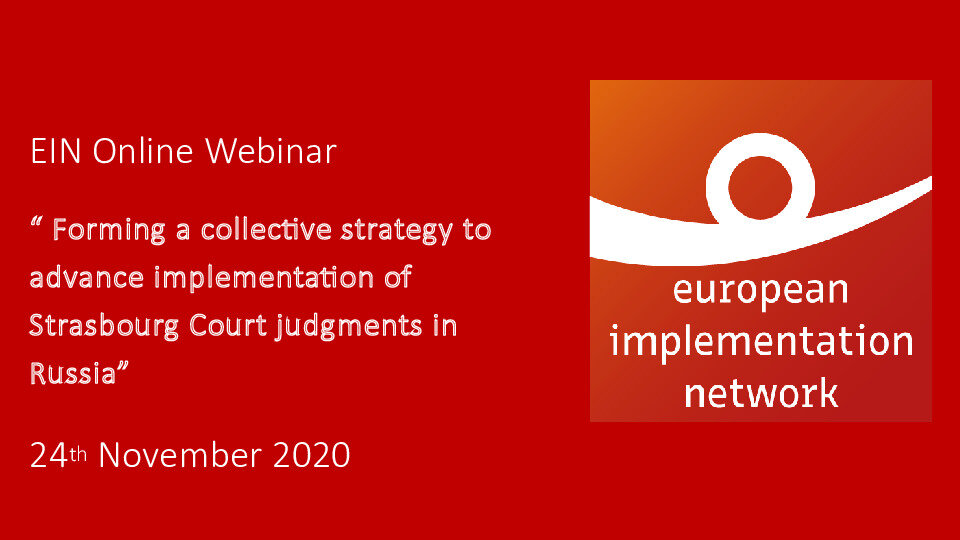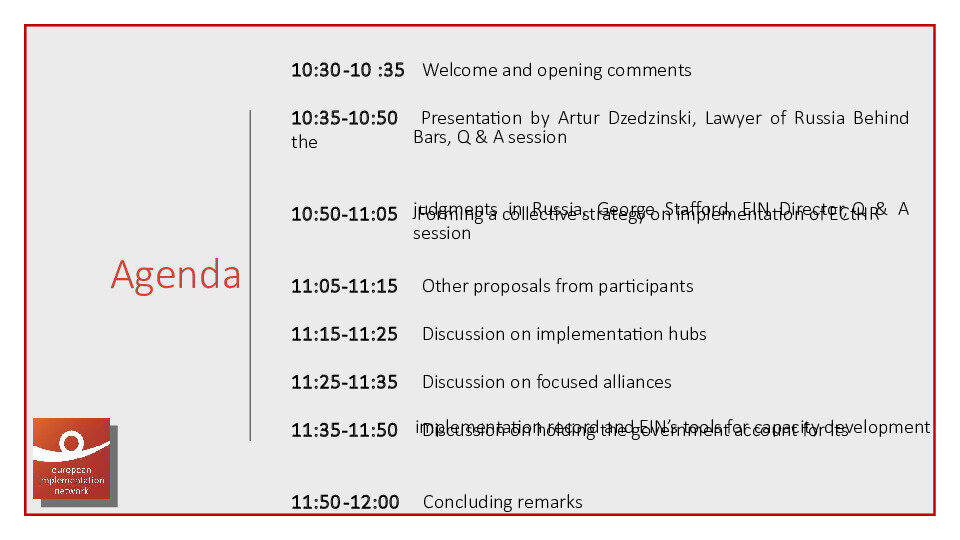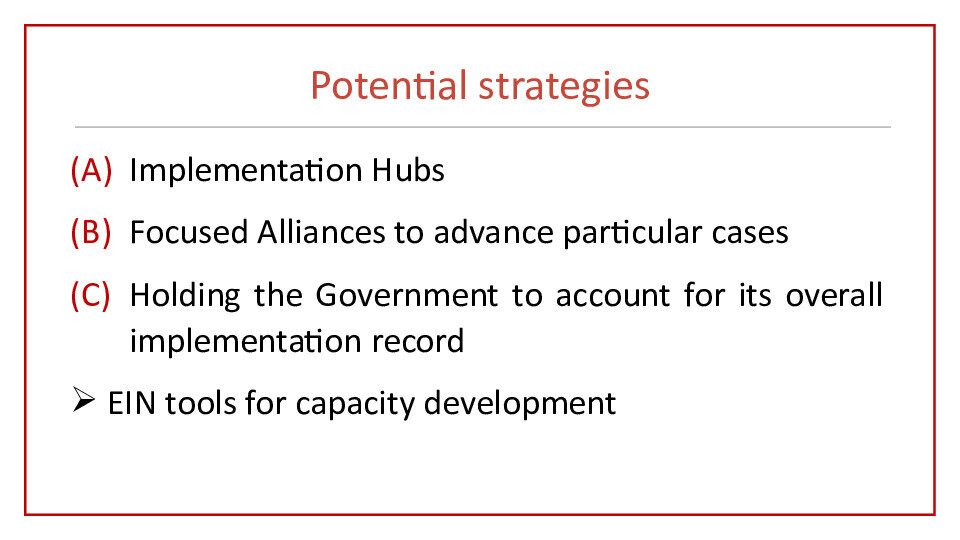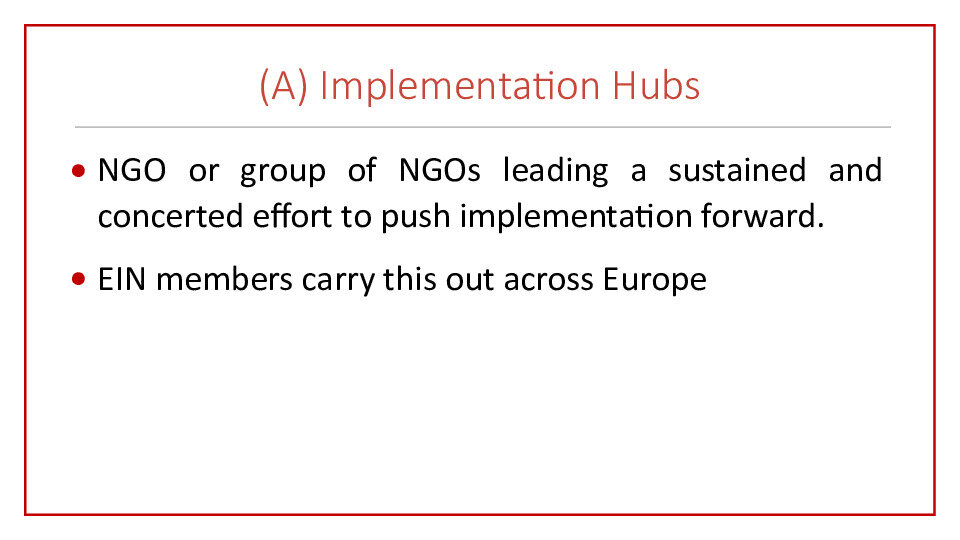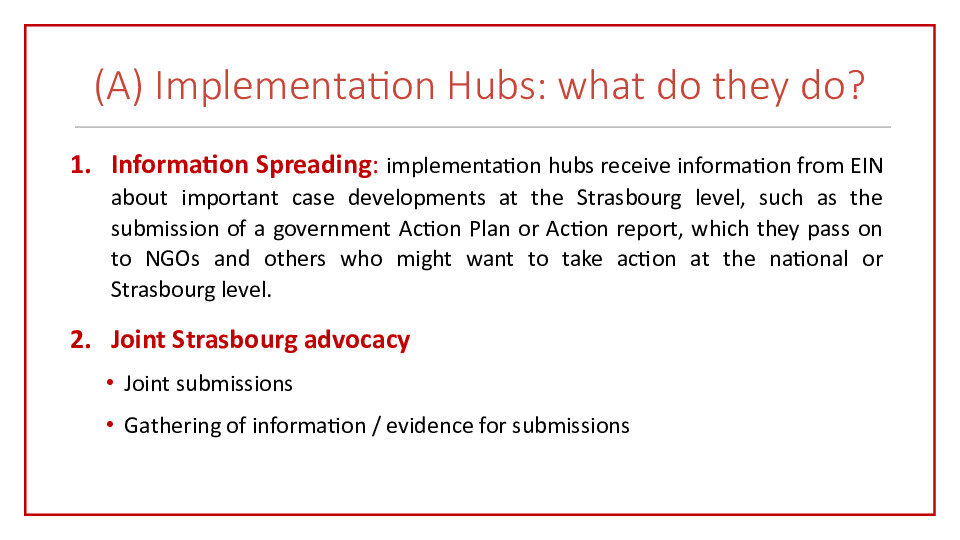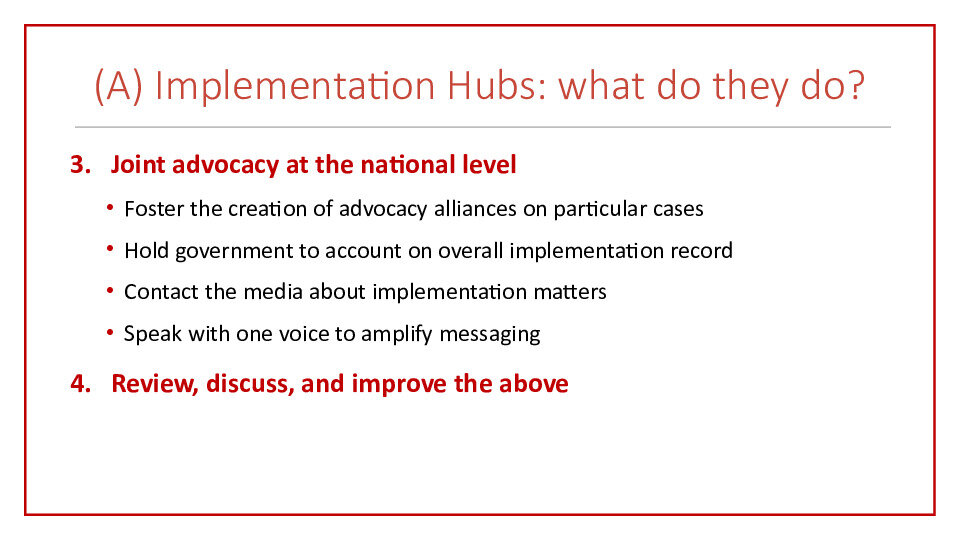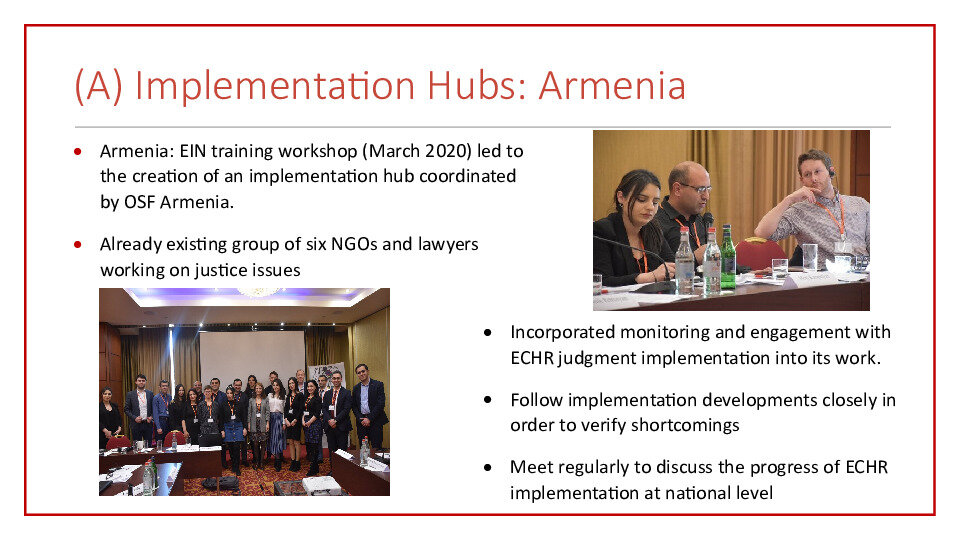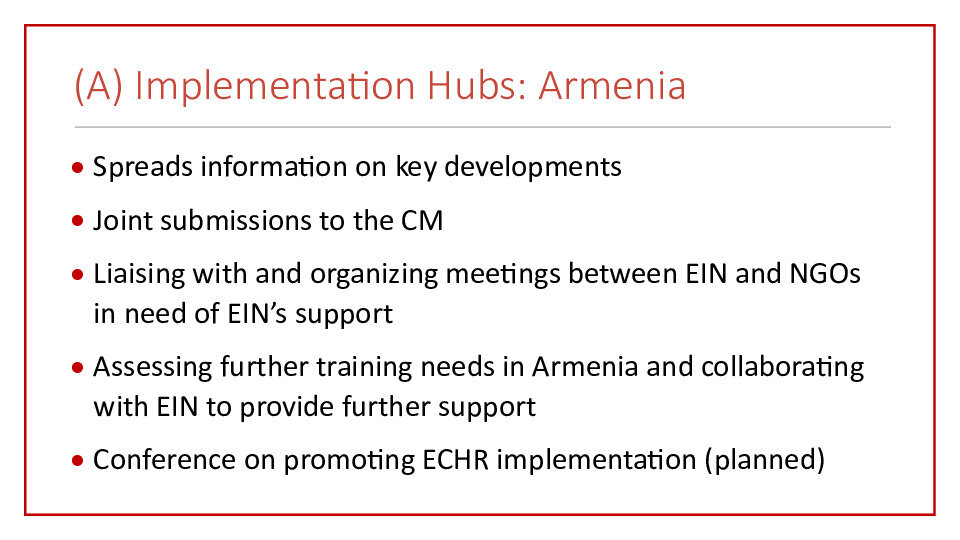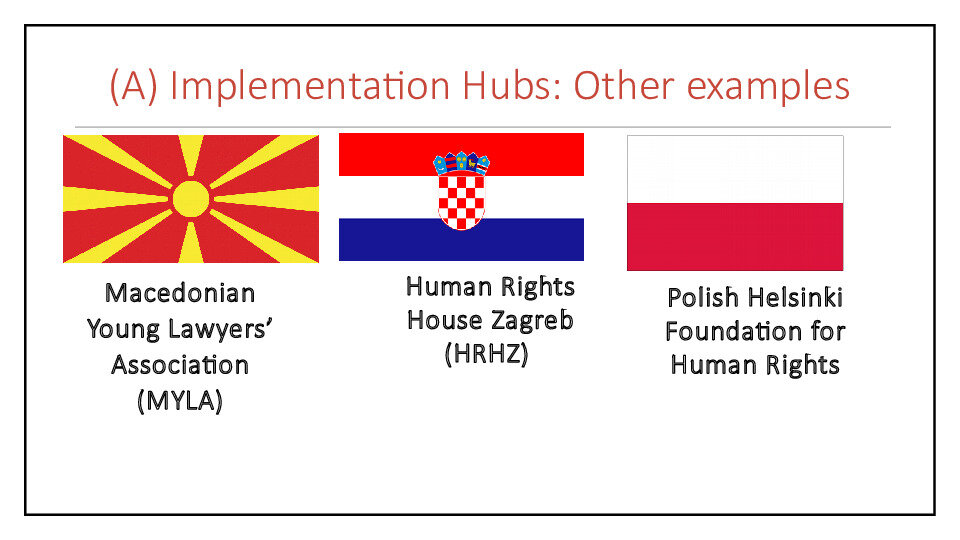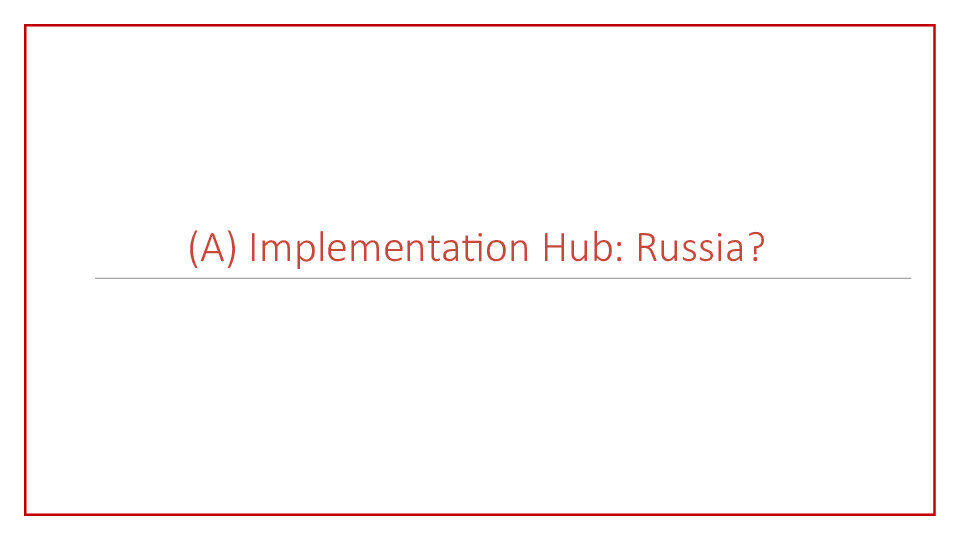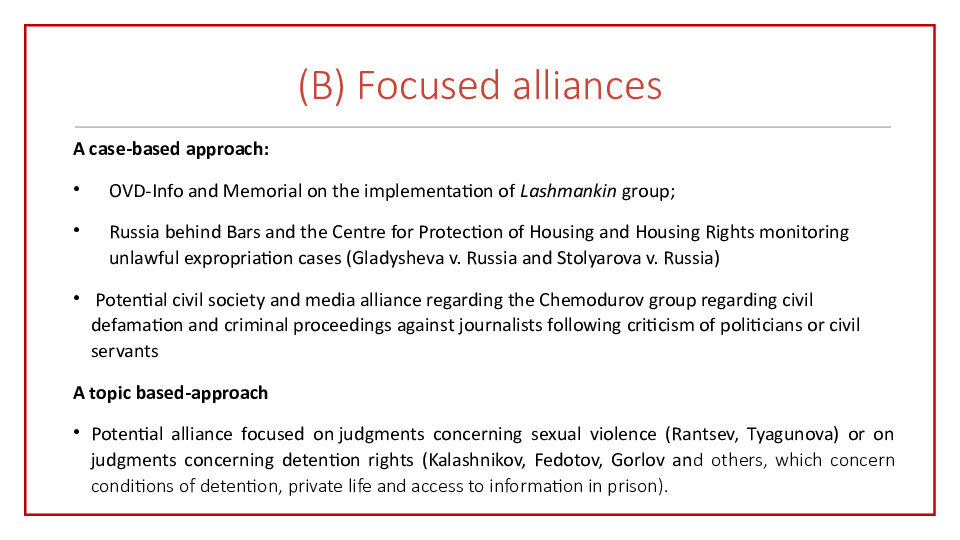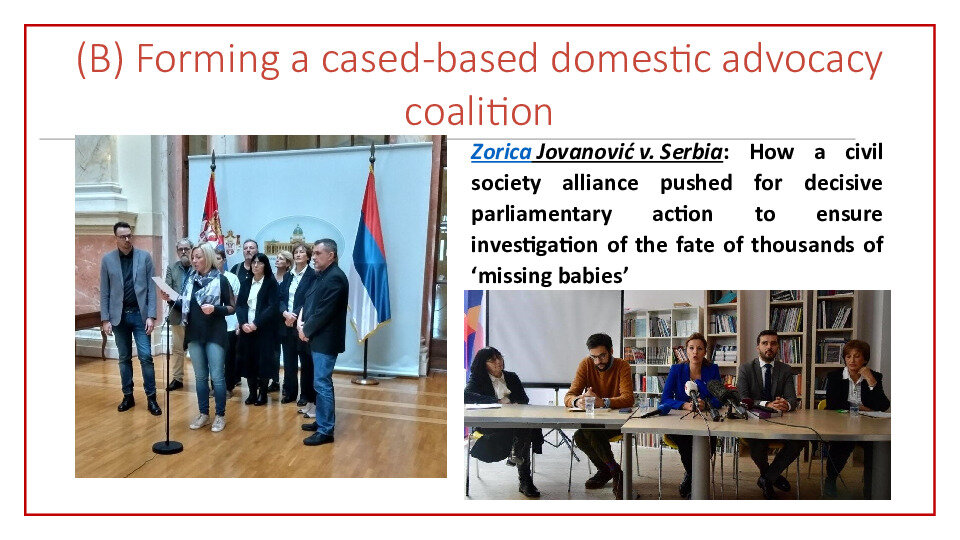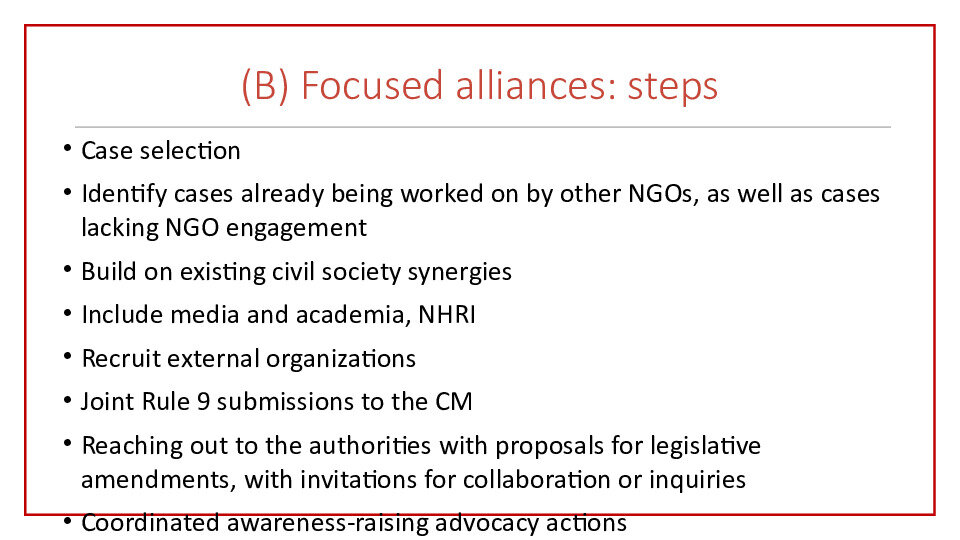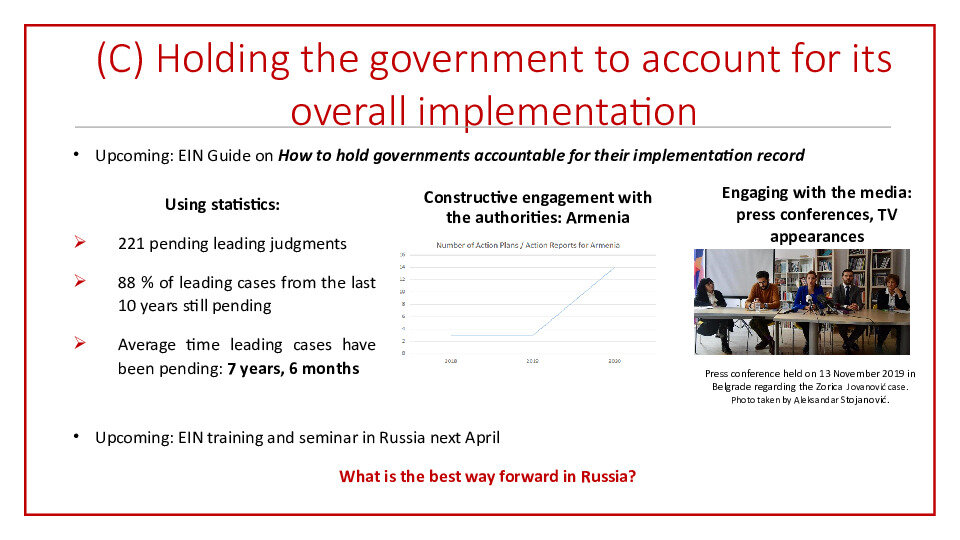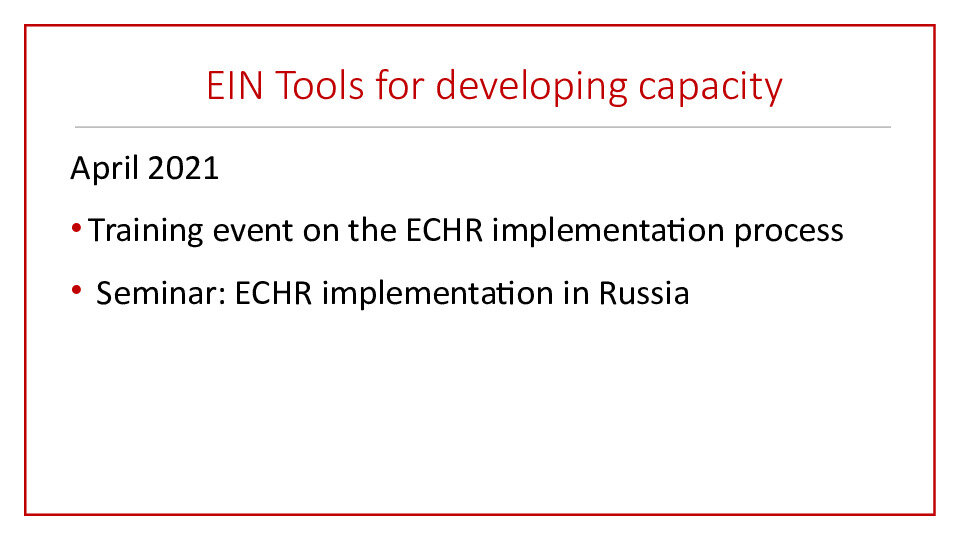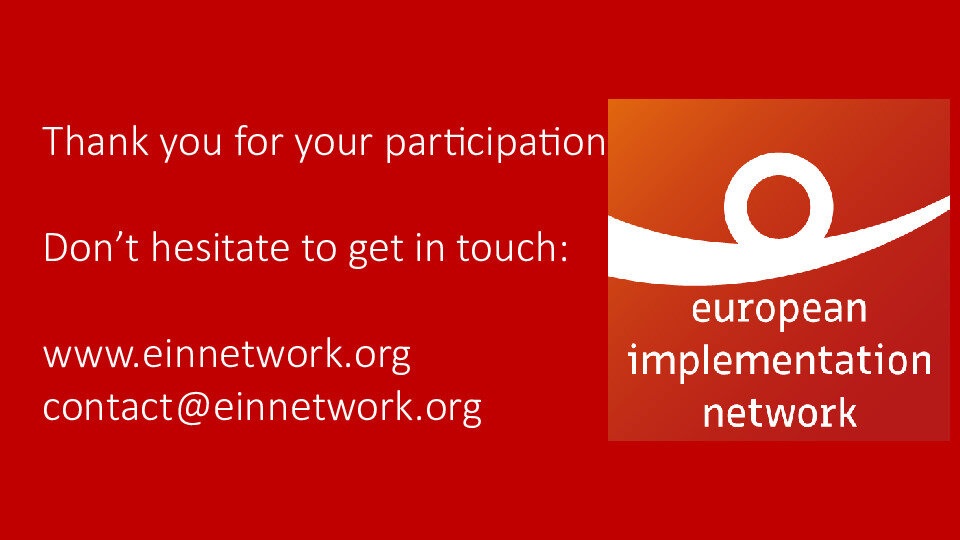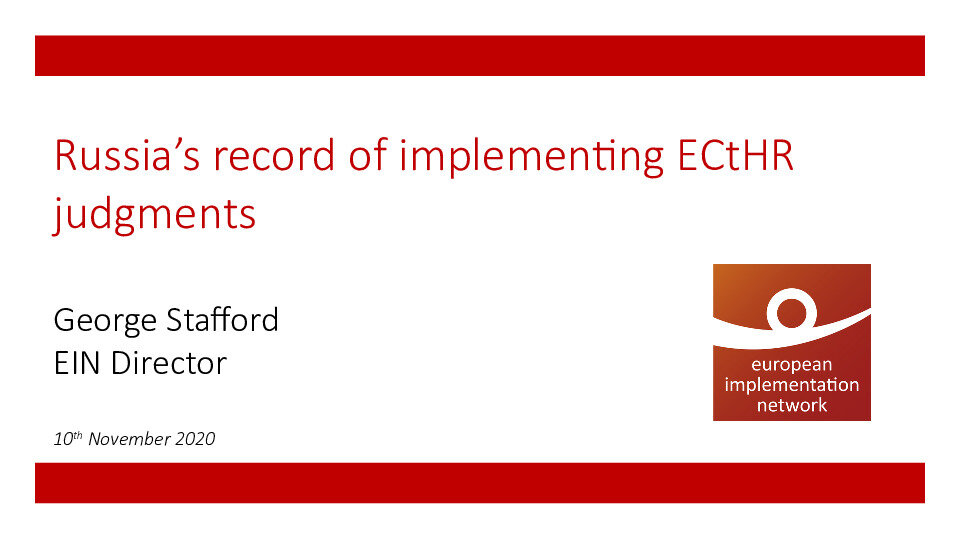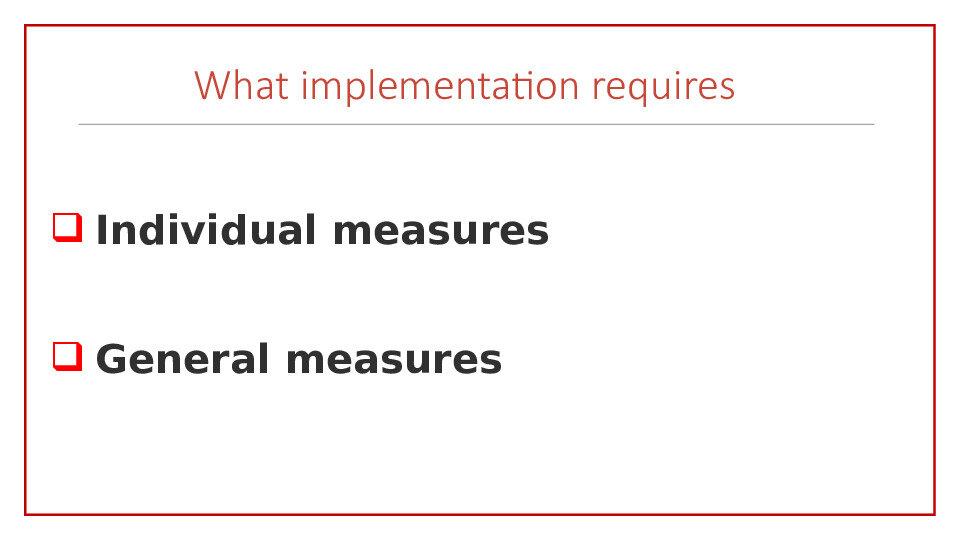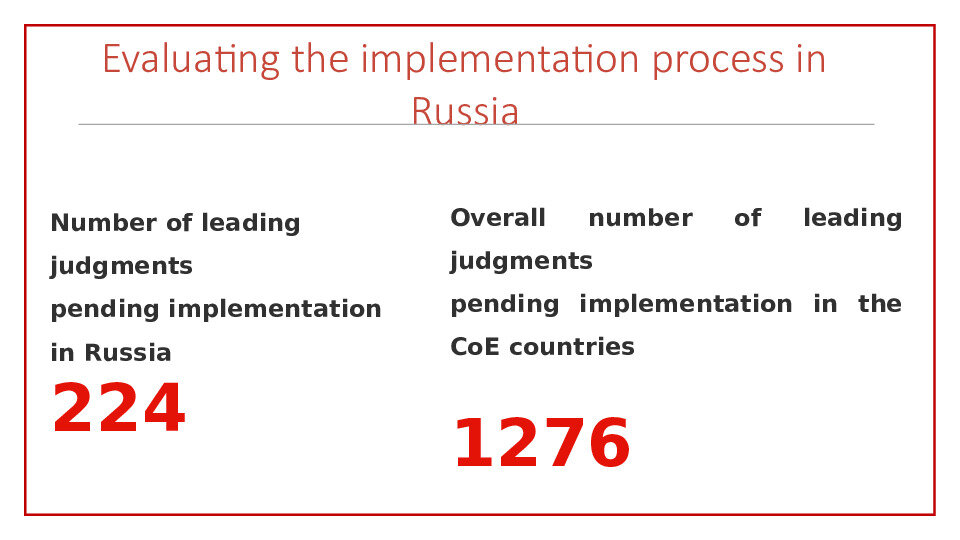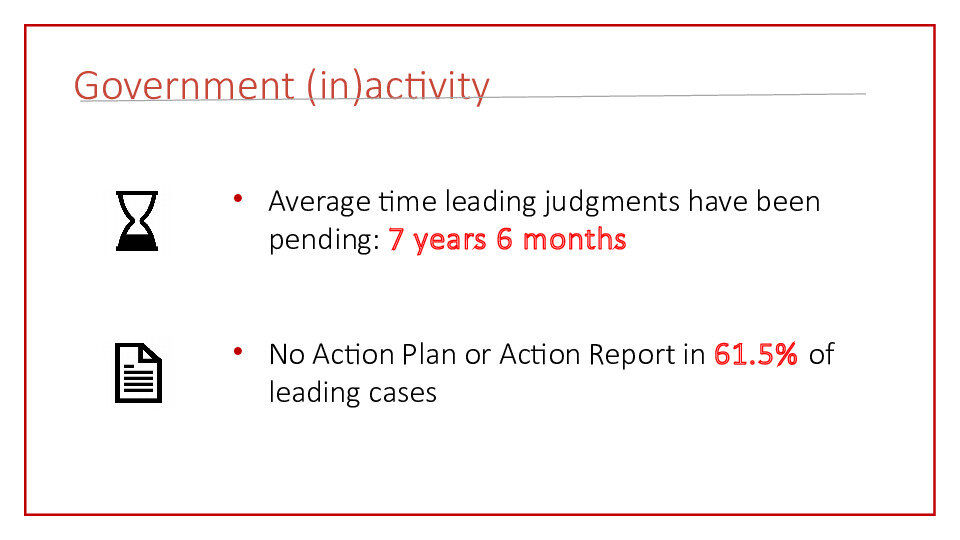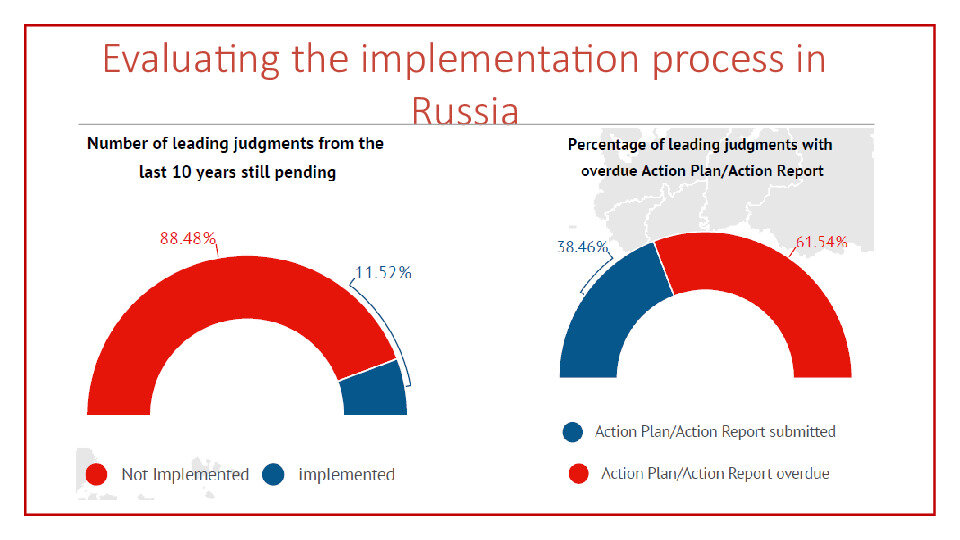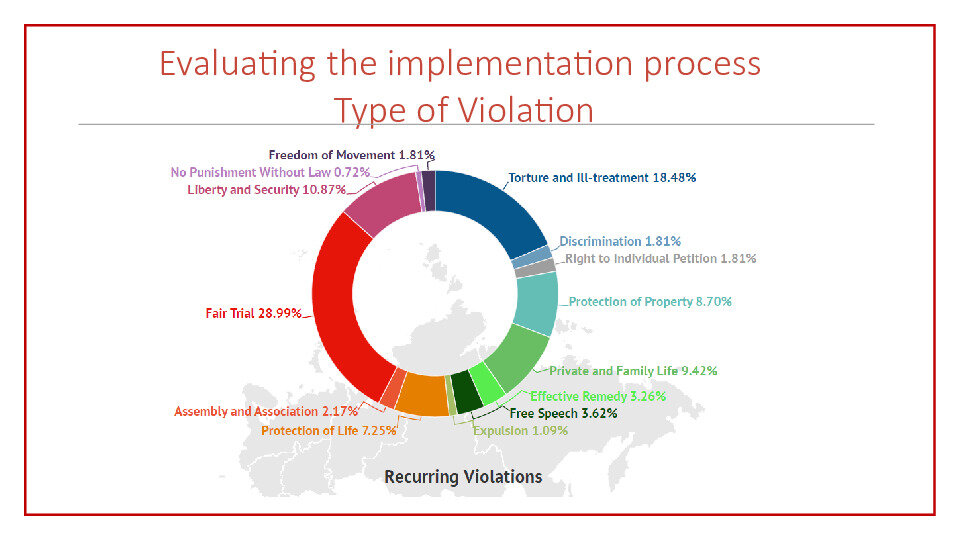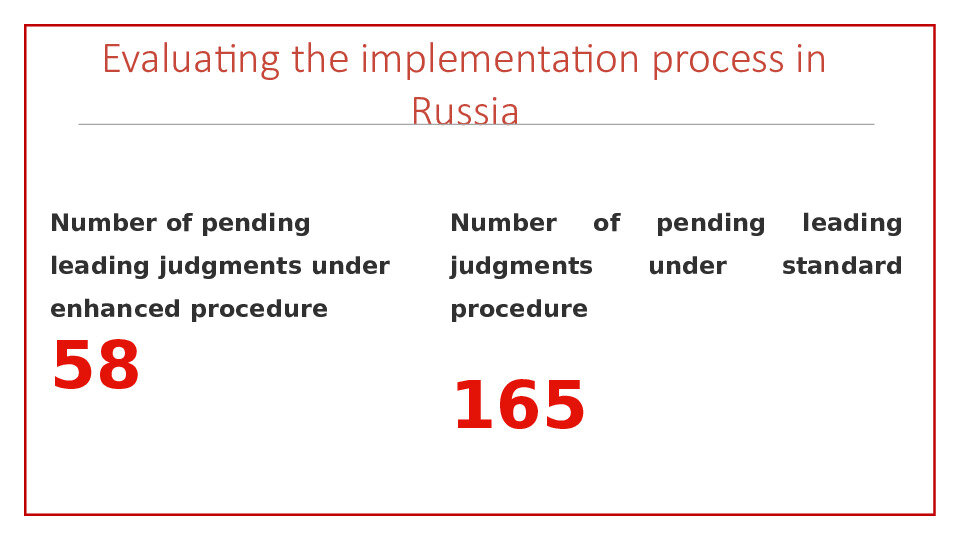The European Court of Human Rights (ECtHR) has rendered judgments identifying the politically motivated prosecution of sixteen different people in Azerbaijan. The victims include human rights defenders, a journalist, civil society activists and politicians. So far, only two of these judgments have been implemented – and only in regard to individual measures - following the acquittal of politician Ilgar Mammadov and human rights defender Rasul Jafarov in April. Since then, there has been no progress in obtaining justice for the other individual victims; and no progress toward the general measures necessary to resolve the underlying issue.
The European Implementation Network has joined with 8 other NGOs to highlight this ongoing situation and call for urgent action.
Joint statement regarding the non-implementation of ECHR judgments against Azerbaijan in politically motivated prosecution cases
by Amnesty International, the Baku Human Rights Club, the Election Monitoring and Democracy Studies Centre, the European Human Rights Advocacy Centre, the European Implementation Network, the Human Rights House Foundation, the International Partnership for Human Rights, the Legal Education Society and the Netherlands Helsinki Committee.
10 November 2020
Widespread use of criminal law and restrictive NGO legislation as a weapon against critical voices is an ongoing hallmark of the human rights situation in Azerbaijan. The government has tried to silence human rights defenders, including lawyers, journalists, bloggers, and civil society leaders as well as politicians by means of arbitrary prosecution and imprisonment.
So far, the European Court of Human Rights (ECtHR) has rendered ten judgments against the Government of Azerbaijan – concerning sixteen victims - regarding politically motivated prosecutions (Article 18 of the ECHR). Only two have been implemented so far and only with regard to their individual measures. Progress on general measures necessary to implement all the judgments concerned, including those closed under the infringement procedure in the case of Ilgar Mammadov v. Azerbaijan, under article 46.4 ECHR, is flagrantly absent.
In its most recent decision, rendered on the 4th of September 2020, the Committee of Ministers of the Council of Europe has ended infringement proceedings against Azerbaijan. It expressed satisfaction in view of the acquittal of two of the applicants, Ilgar Mammadov and Rasul Jafarov. It also called for restitutio in integrum for the other applicants who continue to endure the consequences of arbitrary criminal convictions. These include Anar Mammadli, the head of the Election Monitoring and Democracy Studies Centre, and the prominent human rights lawyer Intigam Aliyev. On the same day that the Committee of Ministers’ decision to end infringement proceedings was taken, another Azeri opposition leader, Tofig Yagublu, was convicted on what Amnesty International have described as politically motivated charges.i
Our organisations do not believe that these two acquittals alone should warrant an optimistic assessment of the actions of the Azerbaijani authorities. Nor should they warrant a decrease in the level of supervision by the Committee of Ministers. Systemic problems of reprisals and political persecution persist in Azerbaijan, as the government continues its strategy to weaken civil society and peaceful dissent.
Local human rights groups have compiled a list of political prisoners, which on 10 June 2020 included 108 people.ii Since the beginning of the pandemic, the government has continued a crackdown on dissenting voices.iii Following political opposition rallies in Baku in July 2020, more than 100 opposition leaders, supporters, and activists were detained and prosecuted on politically motivated charges or subjected to severe penalties under administrative law.iv
Even when victims of politically motivated prosecutions are released from custody, they are left with criminal records. The effects of this are significant, and include bans on carrying out professional activities (such as leading NGOs or representing clients in legal proceedings); being unable to access bank accounts; ineligibility to stand in elections; and bans on travelling abroad.
Government critics have been pursued under trumped-up charges, detained arbitrarily, subjected to torture and other ill-treatment, and imprisoned following unfair trials. All pillars of the criminal justice system have been compromised: starting with the police (who carry out arrests without due process); continuing with the prosecution (which uses trumped-up charges); and finishing with courts (which hand out convictions following unfair trials, in which “confessions” obtained under torture are routinely admitted as evidence).
Restrictive NGO laws were introduced in Azerbaijan in 2013-2014 and have been applied arbitrarily since then. The result has been the hindering of legitimate activities of independent NGOs critical of the government, in particular through continued arbitrary denial of registration and the application of onerous reporting, tax and other requirements creating a pretext for a string of arbitrary arrests and prosecutions of NGO leaders. Subsequent amendments in 2016-2017 created a lengthy, complex and burdensome multi-tier system of approval of grants, which de facto prevents NGOs from accessing grants from foreign donors. Each grant agreement requires approval from the Ministry of Justice and an opinion on the financial-economic expediency of the grant from the Ministry of Finance, which interpret provisions in a discretionary manner, on vague and broad grounds.v Grants are refused for areas which are considered to be already addressed by the governments or where the purpose of a grant and its financial-economic expediency can be assessed as insufficiently described. Furthermore, the state controls information over NGO donations, collects information on individuals donating to NGOs, and exercises extensive monitoring powers over NGO activities. The rules on investigating activities of NGOs give the Ministry of Justice the power to impose, in the context of inspections, requirements on NGOs that are extremely burdensome.
The entirety of this legislation has forced NGOs to operate on the fringes of the law in order to continue functioning, leaving them exposed to sanctions deriving from arbitrary interpretations of this exceedingly prohibitive legislation. The European Court of Human Rights has held that the harsh regulation of NGO activity “cannot be ignored” when looking at the politically motivated prosecution of members of civil society, because the nature of the regulations leads to the criminalization of NGO activity.vi The Courtvii, the Venice Commissionviii and the former Commissioner for Human Rights ix have all expressed grave concerns about the NGO legislation not being in line with international standards and about the arbitrary and harsh way it has been applied.
The issues of politically motivated prosecutions and the restrictive NGO framework are therefore closely intertwined. Intigam Aliyev, Rasul Jafarov and Anar Mammadli, amongst others, were imprisoned under legislation governing NGOs. In these cases, accusations of criminal activity were unlawfully linked to the administrative failures to adhere to draconian NGO and grants legislation. Systemic misuse of the criminal justice system in Azerbaijan cannot be effectively addressed without carrying out reforms to change the laws that are used to facilitate them. Furthermore, a vibrant civil society is fundamental to achieving reforms to ensure independence of the judiciary and prosecution authorities, which are necessary to prevent politically motivated prosecutions - and this will not be possible under legislation that is suffocating civil society.
We, the undersigned NGOs, call upon the Committee of Ministers of the Council of Europe to:
Express serious concern for Azerbaijan’s failure to pursue any of the measures required to address the systemic causes that led to the multiple Court judgments finding politically motivated prosecutions and imprisonment of government critics, lawyers, and human rights defenders, and which led the Committee of Ministers to initiate its first infringement procedure under art 46.4 ECHR in the case of Ilgar Mammadov v Azerbaijan.
Maintain the Mammadli group on the agenda of every upcoming CM DH meeting, in order to apply continuous and effective scrutiny of the implementation of individual and general measures, as a follow up to the infringement procedure in the case of Ilgar Mammadov v. Azerbaijan.
Call upon the Azerbaijani authorities to effectively address the lack of independence in the judiciary that enables and condones arbitrary arrests and prosecutions; to end the politically motivated prosecution of members of civil society and all arbitrary restrictions on their work; and to stop reprisals for legitimate human rights work.
Address the issue of restrictive NGO and grants legislation in the next decision regarding the Mammadli group and request the Azerbaijani government to amend the current restrictive legislation regarding NGO activities and grants to bring it into line with the country’s obligation under international human rights law.
Request that the Secretariat prepare an Interim Resolution, to be issued by the Committee of Ministers at its March 2021 CM/DH meeting unless the criminal convictions of all applicants in this group are overturned by that meeting.
12. Further details of the arguments set above are available in the submissions made by Amnesty International and the European Human Rights Advocacy Centre[i], the International Partnership for Human Rights[ii], and in Rule 9.1 submissions made by the victims, available here.
Endnotes
[i] https://www.amnesty.org/en/latest/news/2020/09/azerbaijan-tofig-yagublu-handed-politically-motivated-sentence/
[ii] A unified list of political prisoners in Azerbaijan, The Working Group (WG) on Unified List of Political Prisoners in Azerbaijan, 21 February 2019, available at:
https://www.turan.az/ext/news/2020/6/free/Social/en/124755.htm
available at (in azeri) https://smdtaz.org/wp-content/uploads/2020/06/Vahid-Siyasi-Mahbus-Siyahisi-10.06.2020-az.pdf
[iii] Human Rights House Foundation, Azerbaijani authorities must cease crackdown on dissenting voices, and release political prisoners, 9 September 2020.
[iv] Amnesty International Public Statement, Azerbaijan: End Brutal Crackdown on Opposition Activists, 5 August 2020, available at https://www.amnesty.org/download/Documents/EUR5528482020ENGLISH.pdf
[v] 1377th meeting (June 2020) (DH) - Rule 9.2 - Communication by Amnesty International, European Human Rights Advocacy Centre (27/04/2020) in the ILGAR MAMMADOV GROUP v. Azerbaijan.
[vi] Yunusova and Yunusov v. Azerbaijan, application no. 68817/14, judgment rendered on 16 July 2020, para. 192. See also Rasul Jafarov v. Azerbaijan, application 69981/14, judgment of 04 July 2016 para 120.
[vii] Rasul Jafarov v. Azerbaijan, application 69981/14, judgment of 04 July 2016 para 120.
[viii] Opinion on the compatibility with human rights standards of the legislation on non-governmental organisations of the Republic of Azerbaijan, adopted by the European Commission for Democracy Through Law (Venice Commission) at its 88th Plenary Session (Venice, 14-15 October 2011).
[ix] Third party intervention by the Council of Europe Commissioner for Human Rights under Article 36, paragraph 3, of the European Convention on Human Rights in the case of Rasul Jafarov v Azerbaijan, Application No. 69981/14, CommDH(2015)8, 20 March 2015.
[x] 1377th meeting (June 2020) (DH) - Rule 9.2 - Communication by Amnesty International, European Human Rights Advocacy Centre (27/04/2020) in the ILGAR MAMMADOV GROUP v. Azerbaijan
[xi] 1369th meeting (March 2020) (DH) - Rule 9.2 - Communication by International Partnership for Human Rights (IPHR) (12/02/2020) in the ILGAR MAMMADOV GROUP v. Azerbaijan (Application No. 15172/13)

